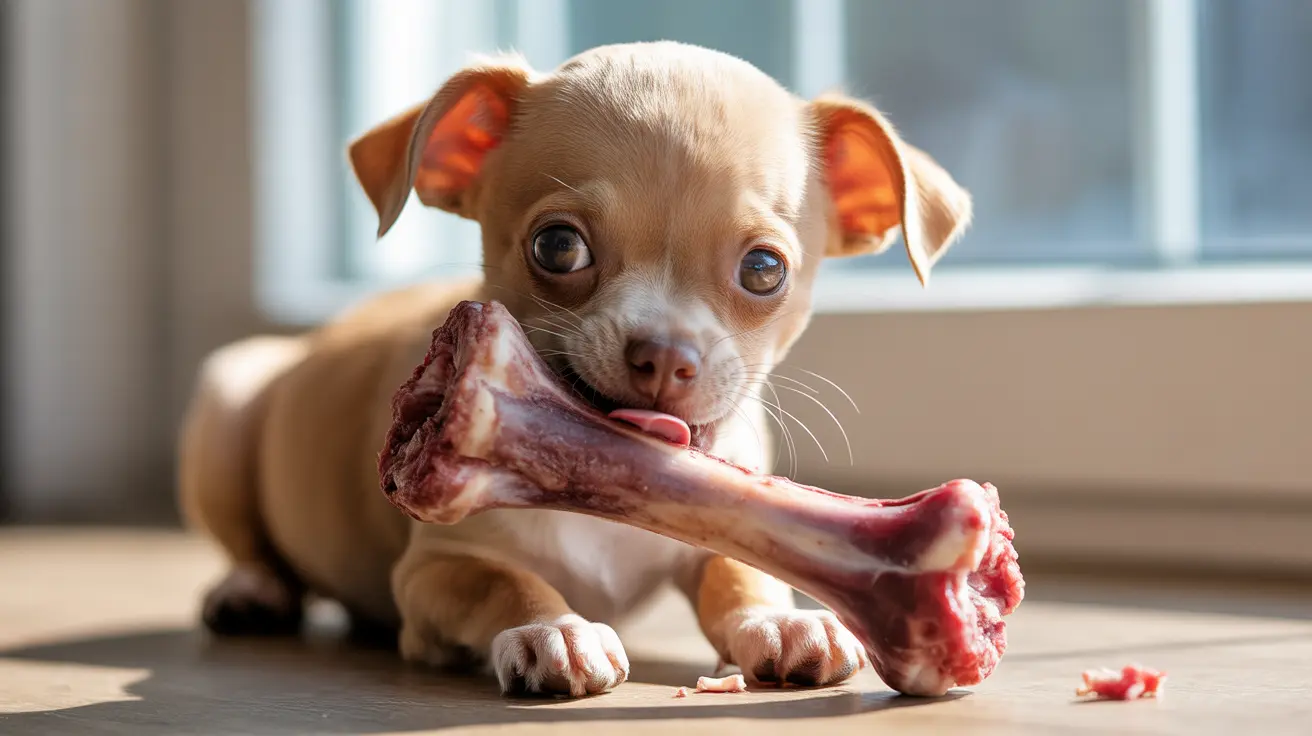Maintaining your dog's dental health is crucial, and many pet owners wonder about natural solutions for keeping their furry friend's teeth clean. Raw bones have emerged as a time-tested method for promoting dental hygiene in dogs, offering both mechanical cleaning action and mental stimulation.
In this comprehensive guide, we'll explore how bones help clean dogs' teeth, examine the scientific evidence behind their effectiveness, and provide essential safety guidelines for pet owners.
The Science Behind Bones and Dental Health
Raw bones act as nature's toothbrush for dogs, providing significant dental benefits through mechanical cleaning action. When dogs chew on raw bones, the abrasive texture helps scrape away plaque and tartar from their teeth surfaces.
Research has shown impressive results: dogs given raw bones experienced up to 87.8% reduction in dental tartar after just 20 days of regular chewing. Even more remarkably, significant improvements were visible within the first three days, with tartar reduction ranging from 35.5% to 56.5%.
Choosing the Right Bones for Dental Health
Not all bones are created equal when it comes to dental cleaning effectiveness. The best options for dental health include:
- Raw beef knuckle bones
- Raw marrow bones
- Raw chicken necks (for smaller dogs)
- Raw lamb bones
Avoid cooked bones entirely, as they can splinter and cause serious injury to your dog's mouth or digestive system.
Benefits Beyond Clean Teeth
While the primary focus is dental health, raw bones offer additional advantages:
- Gum stimulation and improved oral circulation
- Mental stimulation and reduced anxiety
- Strengthened jaw muscles
- Natural source of calcium and phosphorus
- Reduced bad breath
Safe Bone Chewing Practices
To maximize benefits while minimizing risks, follow these essential guidelines:
- Always supervise your dog while they're chewing bones
- Choose appropriately sized bones for your dog's breed
- Remove bones when they become small enough to swallow
- Store raw bones properly in the refrigerator
- Discard bones after 3-4 days
How Often to Give Bones for Dental Health
For optimal dental benefits, offer raw bones 2-3 times per week. This frequency provides regular cleaning action while preventing overexposure to potential risks. Monitor your dog's chewing habits and adjust the frequency based on their individual needs and behavior.
Combining Bones with Other Dental Care Methods
While bones are effective for dental cleaning, they should be part of a comprehensive dental care routine that includes:
- Regular veterinary dental check-ups
- Daily tooth brushing when possible
- Dental-friendly diet choices
- Professional cleaning when recommended
Frequently Asked Questions
Do bones really help clean dogs' teeth, and how effective are they?
Yes, bones are highly effective at cleaning dogs' teeth. Scientific studies show that raw bones can reduce dental tartar by up to 88% within three weeks through natural mechanical cleaning action.
What types of bones are safest and most effective for cleaning a dog's teeth naturally?
Raw, non-weight-bearing bones from beef or lamb are safest and most effective. Avoid cooked bones and choose sizes appropriate for your dog's breed and chewing style.
How often should I give my dog raw bones for dental health benefits?
Offer raw bones 2-3 times per week for optimal dental benefits. This frequency provides regular cleaning while maintaining safety.
Are there any specific safety precautions I need to take when giving raw bones to my dog?
Always supervise bone-chewing sessions, choose appropriate sizes, store bones properly, and remove them when they become small enough to swallow whole.
Can raw bones completely replace regular dental care for dogs, or are additional methods needed?
While raw bones are effective, they should complement rather than replace regular dental care. Continue with veterinary check-ups and other dental hygiene practices for optimal oral health.
Incorporating raw bones into your dog's dental care routine can significantly improve their oral health when done safely and consistently. Remember to consult with your veterinarian before starting any new dental care regimen, especially if your dog has existing dental issues or health concerns.






